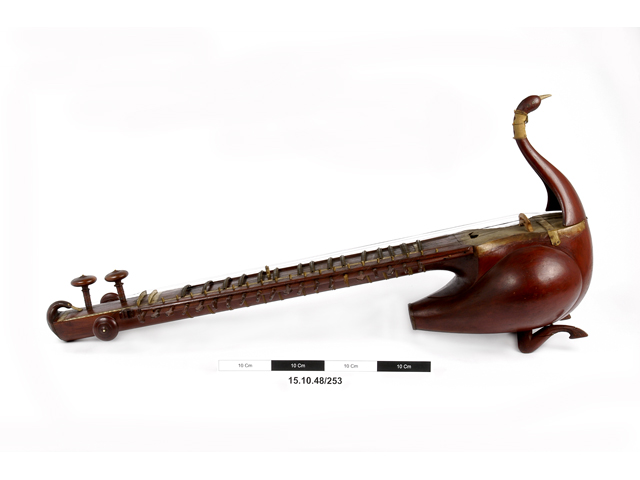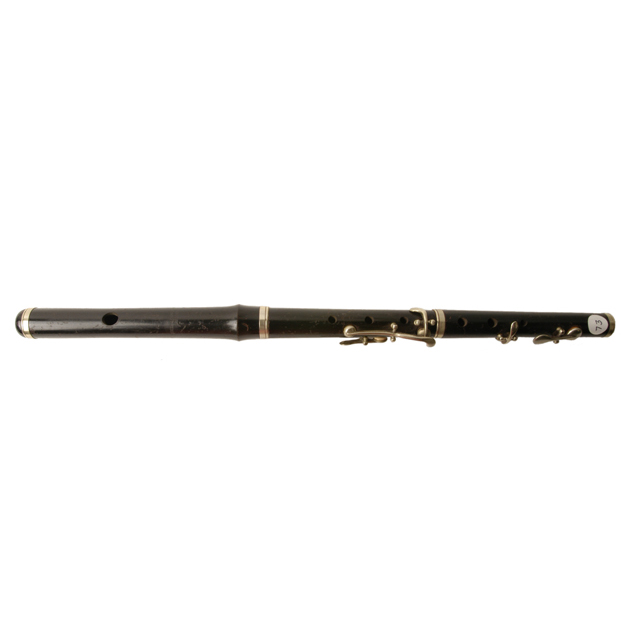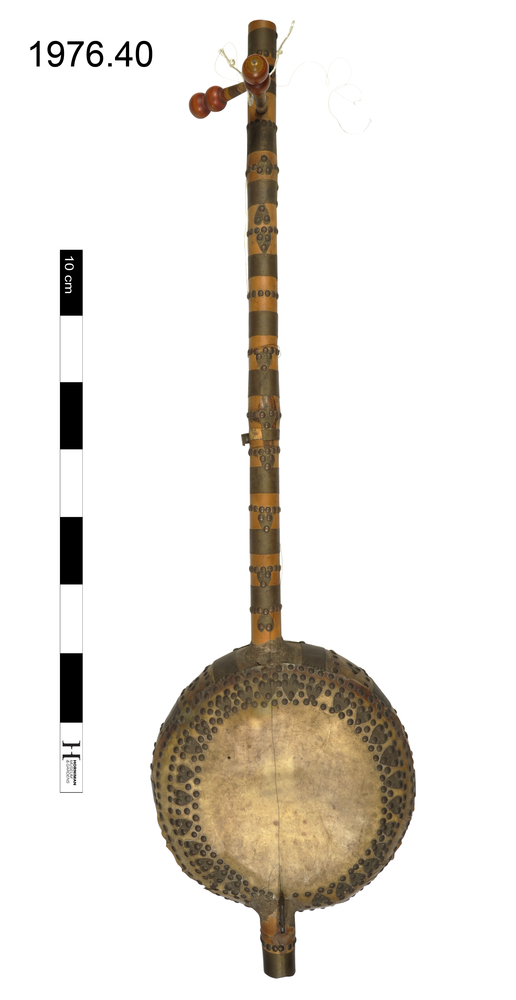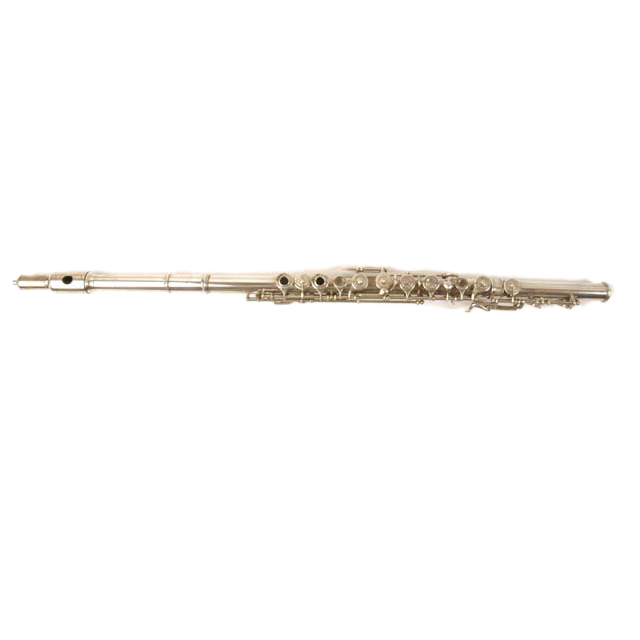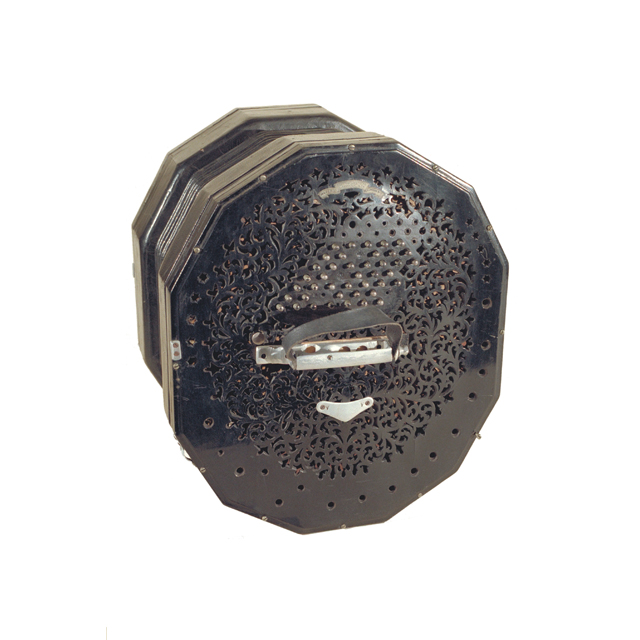
Piano fingering system. Serial number 2182. Large inset engraved scroll: 'The Organoloe, Lachenal & Co. Makers, London.' On Left-hand a further scroll with '21-82' surrounding a central blank escutcheon. 11.31" long x 11.50" AF [across front?]. Raised ebony ends, fancy fretwork with much modification, extra fretting on sides of ends, bevelled edge. 82 keys: 37 left-hand, 44 right-hand, + 1 air. Space for at least 13 more on right-hand (there are 53 reed pairs on the right-hand pan). Later leather straps on home made solid aluminium hand bars. Nine-fold black leather bellows. Steel tongued in round-end aluminium frames, left-hand bass reeds are screwed onto pans, address on right-hand pan: 'Arthur Watson, 16 Ascot Terrace, Pontefract Lane, Leeds.' This prototype organoloe attempted to take the piano-fingering system to its furthest development, and there is much evidence of modification of fingering layout and fretwork patterns. This instrument is in dodecahedron shape and there are 6 rows on the left and 7 on the right, with 2 further right-hand rows removed.



